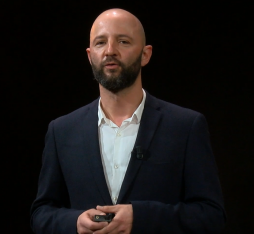The study, whose results are presented here, is part of a concerted effort within Orange to address the needs of female entrepreneurs in Africa. Orange is a partner of UN Women, as part of the Buy From Women initiative that strives to contribute to their economic empowerment. Similarly, the partnership between the Réseau des Associations des Femmes Actives d’Afrique (the Network of African Associations of Women Active in the Workforce) and Orange Bank Africa aims to promote income-generating activities by granting mobile micro-loans with preferential terms to female members of the network.

Photo caption: Céline Mas, President of UN Women France, and Elizabeth Tchoungui, Executive Director of Corporate Social Responsibility of the Orange Group and Deputy Chair of the Orange Foundation, sign the sponsorship agreement at the Orange France headquarters. Paris, March 10, 2022
The authors started by conducting a study, which allowed them to hold interviews regarding two key points that have a strong impact on women’s entrepreneurial activity in Africa: the difficulty of mobilizing relationship networks and the constraints of intertwining business and personal life, which leads to sacrifices needing to be made on a daily basis.
Predominantly survival entrepreneurship
Mostly present in the informal sector and in survival entrepreneurship, the activity of female entrepreneurs in Africa is often far removed from the major theories of entrepreneurship that emphasize innovation, opportunity and risk-taking (Schumpeter 1928). The vast majority of these women undertake entrepreneurship out of necessity, in response to negative factors in their environment, such as the difficulty of finding paid employment.
I’m fighting to reach my goal, I’m not afraid. I still believe I can do it, so I’m going for it!
They often choose a professional activity that is an extension of their domestic activity. Thus, women in Senegal are very present in trade, sewing, weaving, door-to-door sales, market gardening, fruit and vegetable production, and small processing units (Simen, Diouf 2018). Some also prefer e-commerce, which allows them to work while staying at home. Finally, the chosen activity may be rooted in an older family history. Thus, the experience and skills acquired in the family circle when they were children strongly “predispose” women to go into entrepreneurship: “Some women from families with a merchant background grow up watching their grandmothers, aunts, and mothers engage in this activity, which ends up sticking with them and becoming part of their lives” (Doubogan 2019).
As they are mostly operating in the informal sector, it is often impossible to obtain credit from banks, and this is often the case more than it is for men. Women are therefore less likely to seek out institutional financing, and also find it more difficult to finance themselves. As the Women in Africa philanthropy study (2018) reminds us, “women who own micro and small businesses have a higher propensity than men to exclude themselves from the credit market.” It also states that “While 50 percent of female entrepreneurs say that loans from friends and family are their main source of funding, only a quarter of male respondents say the same.”
A difficult challenge reconciling different social eras
While access to financing is a major difficulty that women face in their entrepreneurial projects, other obstacles make their journey particularly complicated. The article by Moguérou et al. (2019) reports on a study carried out in Dakar and Lomé on the distribution of domestic tasks within households when women are active in the workforce and how this is reconfigured over time. It shows how this new division of tasks reexamines gender roles within the couple and more widely within the family. The new economic role that women play within their families by working outside the home can throw off the balance of the couple by robbing the man of what he had previously deemed to be his masculinity. These authors also show in this article that working women are often alone in financing the recruitment, coordination and financial support of the staff assisting them in household tasks, “literally and figuratively paying the consequences of their professional investment” completely on their own. They conclude that “the sharing of domestic tasks in West Africa is often inconceivable in married couples.” Indeed, there is a persistent view that women are “failures in their roles as mothers and wives” when they cannot assume all the tasks traditionally assigned to them. The article even speaks of dishonor, both for men who accept the fact that their wives do not take on domestic tasks and for the women who are seen outside the home as incapable of doing so.
Highly homogeneous proximity networks hinder the development of female entrepreneurship
Relationship networks play a vital role in an entrepreneurial project. Understanding how these female entrepreneurs mobilize their networks throughout their entrepreneurial career is an important component of understanding of their journey.
To achieve such understanding, the approach was to utilize the theory of social capital, which considers that the relationships forged within a social network (physical and/or virtual) enable resources to be mobilized (Cucchi, Fuhrer 2011). Thus, according to Robert Putnam (1995), social capital “refers to connections among individuals—social networks and the norms of reciprocity and trustworthiness that arise from them. (…). Thus, in his book, Putnam confirms Granovetter’s pioneering work related to the strength of weak ties: the “weak” ties that link me to distant acquaintances who move in different circles from mine are actually more valuable than the “strong” ties that link me to relatives and intimate friends whose sociological niche is very like my own. Strong ties are good for stimulating oneself, reassuring oneself; weak ties are good for moving forward, evolving.” He thus defines two forms of social ties, the “open” ties that bridge individuals and the “closed” ties that unite equals.
However, female entrepreneurs in Africa rely mainly on small and highly homogeneous networks of proximity, which reduces their potential for creation and development compared to men.
Their situation is specific compared to their male counterparts at this level in the sense that “Women generally group themselves together, in associations, tontines, clubs, movements… In other words, the networks they join are not very diversified” (Simen, Diouf 2014). However, the quality and quantity of potential information and resources are very closely linked to the diversity, size and density of the relationship network. As the social capital of African female entrepreneurs is mainly made up of strong ties and less often of weak ties, this significantly hinders the development of their entrepreneurial projects.
Female entrepreneurs highly invested in their project
Once the study was completed, individual semi-structured interviews were conducted with 11 female entrepreneurs in Senegal and Côte d’Ivoire in order to validate the two initial hypotheses: the difficulty of mobilizing relationship networks and the constraints of intertwining business and personal life, which leads to sacrifices needing to be made on a daily basis. In this first phase of interviews, the women interviewed (who were generally young and educated) chose to become entrepreneurs after being motivated by business prospects. They are active in various sectors such as trade (clothing, cosmetics), education, agriculture and food (bakeries), for example. Two profiles emerged from these interviews: female entrepreneurs who have been in the same line of business since the beginning and those who, over the years, have evolved over a range of often very heterogeneous activities. Even if they are not representative of the majority of African female entrepreneurs, they are nonetheless interesting in terms of their stance and the perspectives they bring to the subject. The interviews therefore focused on their personal journeys, the key moments in their career, and the difficulties they face, with the aim of identifying how societal constraints and relationship networks impact their journey.
They are all committed, admirable women who are passionate about their project. These interviews revealed that their “atypical” profiles did not completely protect them from some of the difficulties mentioned previously, and in this respect, the lessons learned provide us with a better understanding of the subject studied.
Access to financing remains a key problem for these women who often start up their business with the financial support of their close family, in particular their mothers, who are their role models. Fatou, 43, states: “My first partner and financial backer was my mother.” They say that they lack support from the government and banks, who do not trust in their entrepreneurial abilities: “I’m not too motivated to apply for state funding because I’m not well-connected” (Yacine, 49). There is therefore real self-censorship on the part of these women, who then turn to other financial backers such as the European Commission, the GIZ and the UN, even if they do not all have the relationship networks likely to bring them useful information at this level. They also often lack the time to prepare applications: “I see things come through but I haven’t applied for other opportunities because I’m so involved in day-to-day management!” (Inès, 35). As a result, these women often finance their business on their own, which considerably hinders their development possibilities: “If the goods sell, in exchange I have money and I can buy new things to maintain my clientele with new items” (Chorine, 33).
The women interviewed also mentioned that it’s not always easy for them to assert themselves when starting their business: “When you start off, you’re alone. You need strength to keep your conviction” (Fatou, 43). Their place in the economic world is not self-evident to everyone and, more than men, they have to prove themselves to gain legitimacy and recognition. As such, Cathy explains that “it was difficult. It was hard to get accepted. We had to fight, to be pioneers.” Overall, these women are confident and believe in themselves, yet managing men remains a difficulty for them at the beginning. Their confidence and determination are strong levers for their business. For example, Chorine (33) says: “I’m fighting to reach my goal, I’m not afraid. I still believe I can do it, so I’m going for it!”
A courageous choice for these women who often have to face the critical gaze of society and their in-laws at the same time
Working, and especially choosing to be an entrepreneur, is sometimes perceived as abandoning the home and endangering the family balance. They are therefore working on all fronts, both professionally and in their families: “In Africa, it’s difficult to combine the two. We have values; the woman has to take care of her family” (Cathy, 50). The role of one’s family circle is vital at this level, and the support of one’s spouse is essential: “My husband is in the business sector and shares the idea that I’m an entrepreneur, that I work” (Yacine, 49). Nevertheless, the interviews conducted highlighted the fact that these women have taken on more than their “traditional” role and are claiming their place in the economic and social development of their country. Their projects are often driven by strong ethical, human and societal values: “If we had not recruited them, they would be at home cooking and waiting for their husbands” (Ysseu, 37). They want to learn, to progress, but also to pass on their knowledge and experience, which they do as part of their business or through local associations that help women in particular: “When I see these women in rural areas, I admire their courage. These shared experiences inspire me the most.” Fatou, 43, says that “we’re not just interested in the profit side. We want to help them become self-sufficient.”
These women are also heavily involved in the day-to-day management of their businesses and stress the importance of being hands on: “I’m always getting my hands dirty. If I don’t do it, the day I don’t have the staff, I won’t know how to do it” (Fatou Joséphine, 30). Occupied with the day-to-day tasks of their business, they find it difficult to free up time to devote to its development. Thus, although they have strong ambition, they describe business expansion as painful because it requires personal sacrifices: “When you start out, you are the accountant, the recruiter, the manager… it doesn’t help you with productivity” (Yacine, 29). This translates into a very tight organization and time management on a daily basis: “It’s a bit of a tricky situation. I use my own lunch break to go and look for the goods if the customer is pressed for time” (Anne-Victoire).

According to the Women In Africa philanthropy report (2020), “Women are the backbone of the African economy,” with female entrepreneurship accounting for an estimated 7–9% of the continent’s GDP, or $150–200 billion (see chart). They also play an important role in society by committing themselves to important causes such as the integration of women and young people.
The interviews conducted confirmed the hypotheses put forward at the beginning of the study. Thus, the weight of the family sphere, unequal treatment between men and women in the business world, and the relationship networks founded mainly on strong ties can have a highly negative impact on the development of these women’s businesses, even though they are educated and have developed in a formal, chosen entrepreneurship. Continuing this work, in particular by interviewing less educated women with different backgrounds from those encountered so far, would be pertinent to fully understanding this target group’s difficulties and needs and thus would allow Orange to develop specific offers and dedicated training courses.
Sources :
- Cucchi A, Fuhrer C. Capital social et usage des technologies de l’information et de la communication (TIC): une analyse par les réseaux sociaux in Management & Avenir 2011/5 (no. 45), pages 179 to 206
- Doubogan, Yvette Onibon. Entrepreneuriat féminin et développement au Bénin, Etudes africaines, série sociologie, L’Harmattan, 2019
- Kante, Silamakan. “L’entrepreneuriat féminin au Mali: cas de la commune I du district de Bamako,” 11/2020
- Martin H. “Le changement social et la rhétorique traditionaliste: la qualification sociale de l’entrepreneuriat féminin à l’intersection des rapports sociaux de sexe, de classe et de colonialité,” Recherches féministes, Vol. 26, no. 2, 2013, 165–182
- Méda D. “Le capital social: un point de vue critique,” Alternatives économiques | “L’Économie politique,” 2002/2 no. 14 | pages 36 to 47
- Moguérou L, Vampo C., Kpadonou N., Adjamagbo A., “Les hommes au travail… domestique en Afrique de l’ouest. L’effet modéré des reconfigurations du travail féminin sur les masculinités à Dakar et à Lomé,” L’Harmattan, Cahiers du Genre no. 67, 2019
- Putnam, R., Bowling alone: America’s Declining Social Capital. The Journal of Democracy 6 (1), 65–78, 1995
- Roland Berger, Women in Africa Philanthropy, Entrepreneurship study, “Women in Africa: plongée au cœur de la ruche entrepreneuriale,” 2018
- Roland Berger, Women in Africa Philanthropy, Entrepreneurship Study, “Accélérer la dynamique entrepreneuriale des femmes en Afrique,” 2020
- Simen, S., Diouf. I. “Entreprenariat féminin au Sénégal: vers un modèle entrepreneurial de nécessité dans les pays en développement?” 2018
- Simen S., Diouf. I. “Importance des réseaux de relations personnelles dans le processus de création d’entreprise: le cas des femmes-entrepreneures au Sénégal,” 2014












